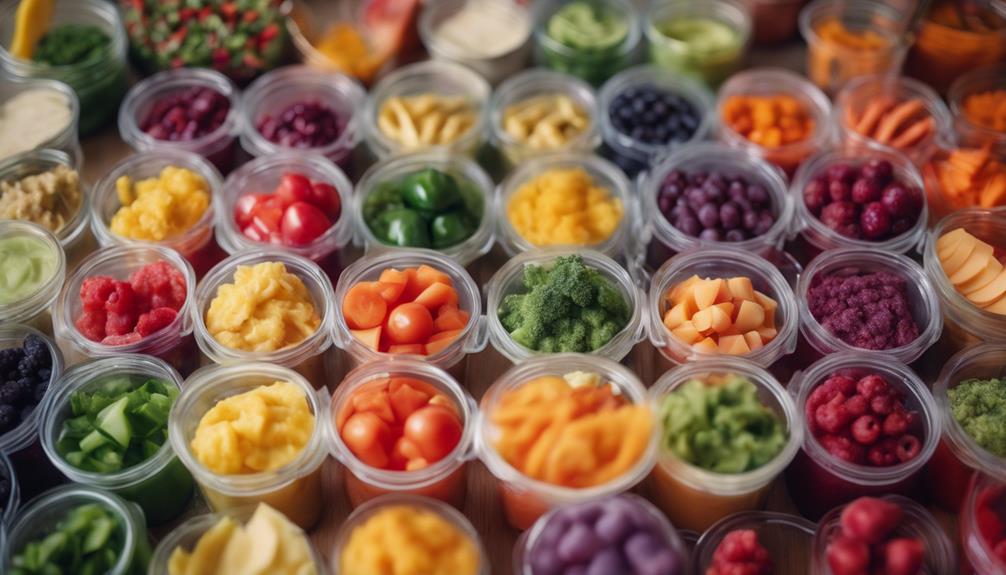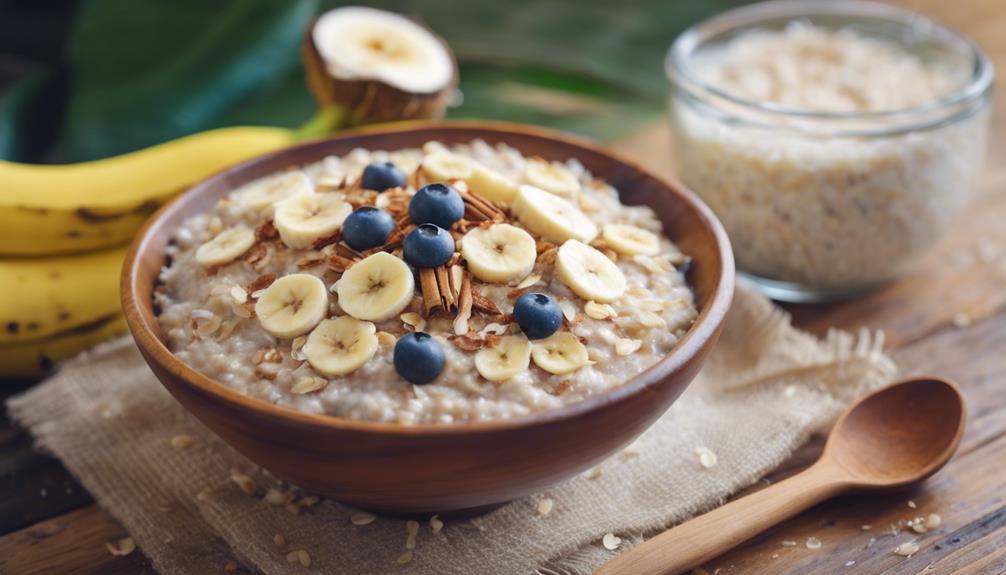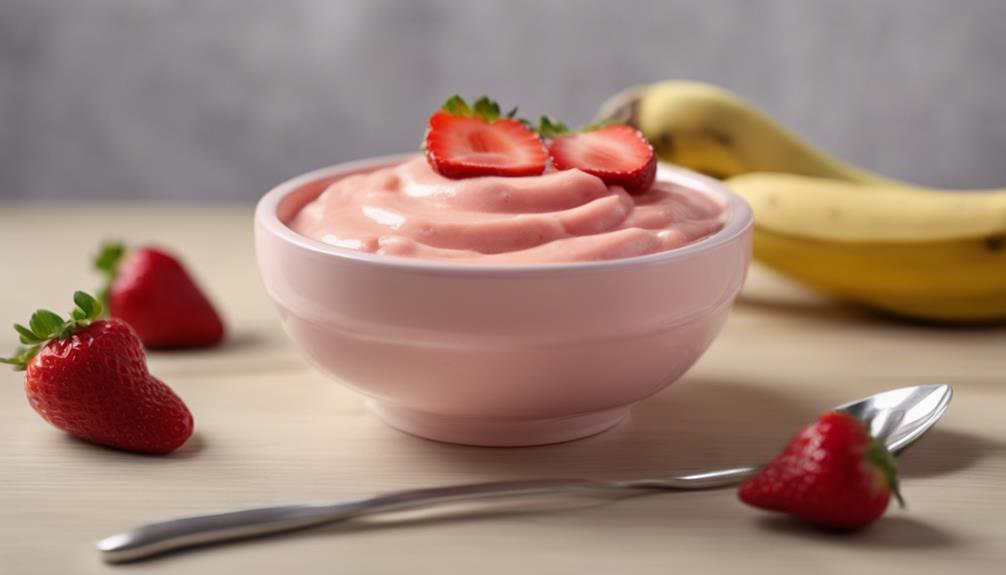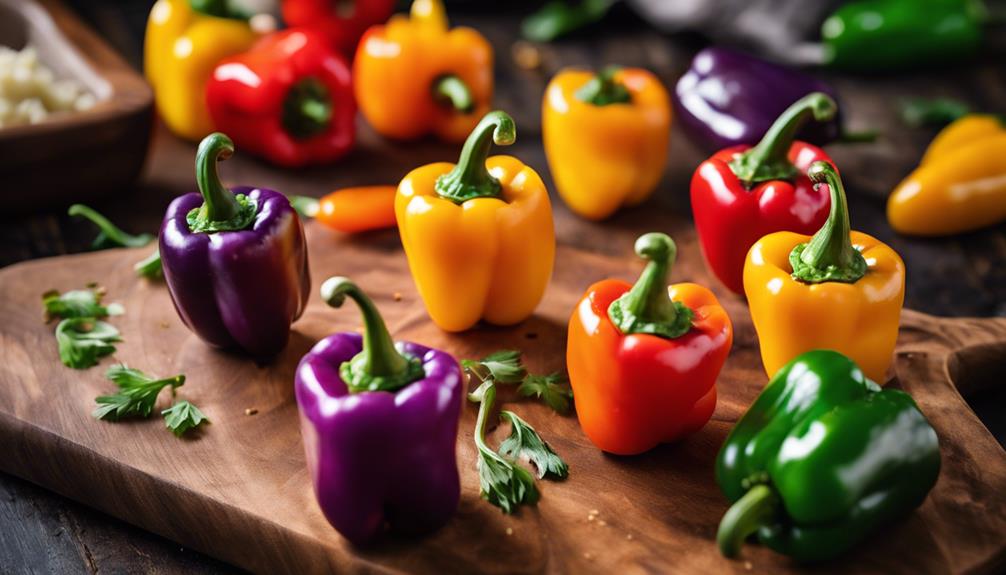To start preparing easy and healthy meals for your infant, begin by using nutrient-rich pureed fruits and vegetables such as apples and sweet potatoes. Making baby food at home gives you control over what goes into it, ensuring a nutritious beginning. You’ll need an immersion blender and ice cube trays for storing the food. Start with purees that contain only one ingredient to help identify any allergies. Try mixing flavors like mint and apricots to encourage a taste for healthy foods. Freeze-drying baby food helps it last longer and keeps its nutritional content intact. Thaw frozen baby food in the refrigerator overnight. Other tips include using enough liquid when blending and adding nutrient-rich ingredients. Look into different baby food recipes to create a well-rounded diet.
Key Takeaways
- Start with nutrient-rich pureed fruits and vegetables for essential vitamins and minerals.
- Incorporate iron-rich foods like pureed meats and lentils to prevent anemia.
- Experiment with flavor combinations like mint and apricots for healthy eating habits.
- Offer simple and nutritious meal options like baby oatmeal and whole milk.
- Ensure balanced diet with diverse ingredients for growth and development.
Starting Solid Foods
When starting the shift to solid foods, observe signs of readiness in your baby to guarantee a smooth introduction. Look for cues like your baby being able to sit upright with support and showing interest in food by reaching for it.
Before you introduce foods, make sure you have pediatrician approval to proceed safely. It's important to delay certain foods like grains and nuts until after your baby's first birthday to reduce the risk of allergies or digestive issues.
For easy baby feeding, consider offering small amounts of soft, mashed foods from your plate as your baby sits in your lap. This can help your baby get accustomed to different tastes and textures gradually.
Best First Foods for Baby
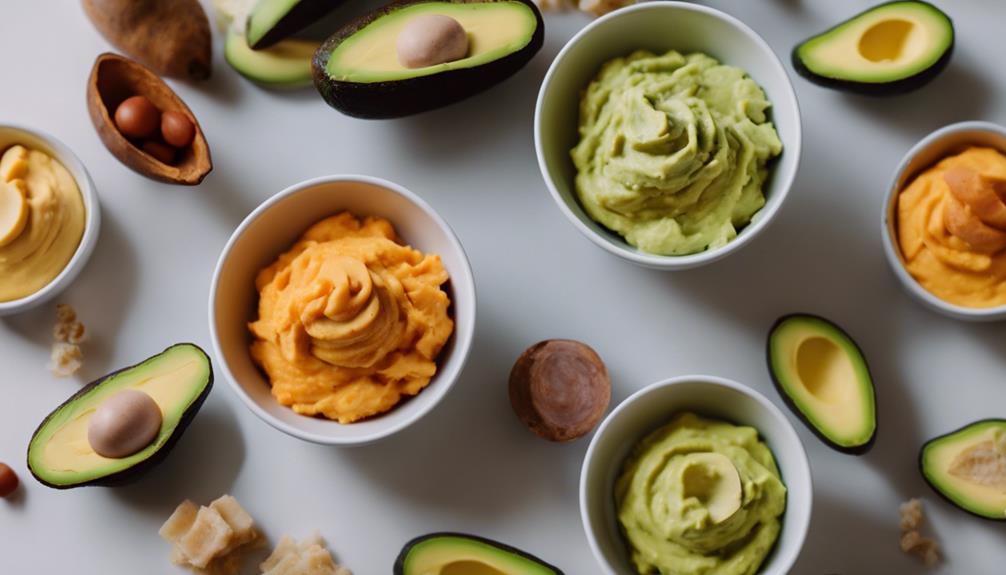
For introducing solid foods to your baby, consider starting with nutrient-rich pureed fruits and vegetables like apples, sweet potatoes, and peas. These first foods provide essential vitamins, minerals, and fiber important for your baby's growth and development. Additionally, incorporating iron-rich foods such as pureed meats, chicken, and lentils is essential to prevent anemia in infants.
| First Foods | Type of Food | Benefits |
|---|---|---|
| Pureed Fruits | Apples, Pears, Bananas | Rich in essential vitamins and minerals |
| Vegetables | Sweet Potatoes, Carrots, Peas | Excellent source of nutrients |
| Iron-rich Foods | Meats, Chicken, Lentils | Critical for preventing anemia |
Starting with single-ingredient purees is recommended as it helps identify any potential food allergies or intolerances in babies. Homemade baby food is also a great option as it allows you to control the ingredients, ensuring a nutrient-dense and wholesome start to your baby's solid food journey.
Homemade Baby Food Supplies
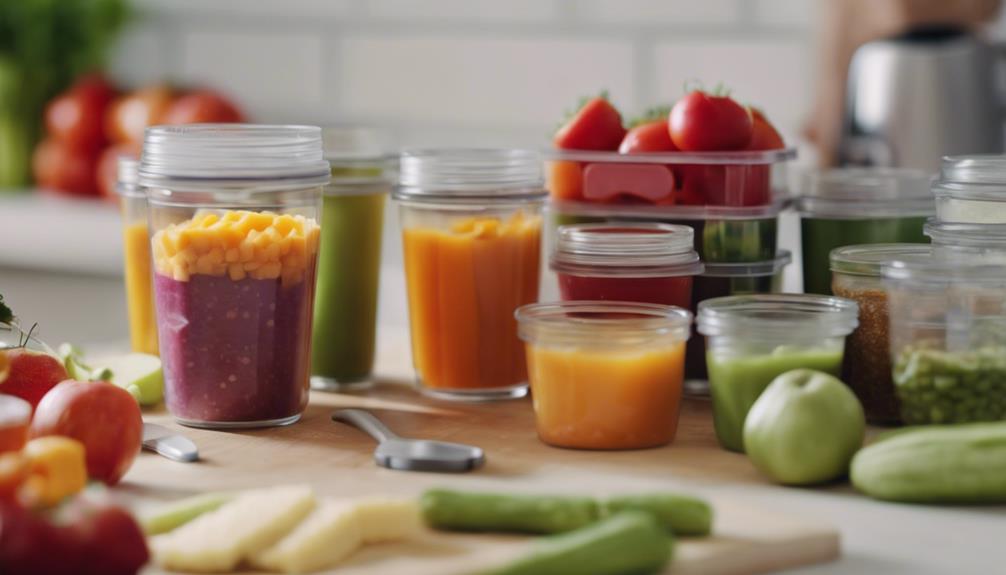
Consider stocking up on essential supplies like an immersion blender, ice cube trays, and small containers to prepare homemade baby food. These tools make it easy to create nutritious and sweet foods for your little one.
When making Baby Food Combinations, having these items on hand can streamline the process and guarantee you have a variety of options available.
Additionally, investing in suction bowls, spoons, and bibs can make feeding time a breeze while containing any messes that may arise.
For on-the-go feeding, high-quality pouches are convenient, and don't forget to have dish soap and dishwasher detergent for cleaning up afterward.
If not exclusively breastfeeding, bottles for milk are essential to provide different feeding choices for your infant.
In conclusion, a convertible highchair is a versatile seating solution that promotes comfort and safety during meal times.
With these supplies, making homemade baby food will be a simple and enjoyable experience.
Essential Baby Food Ingredients
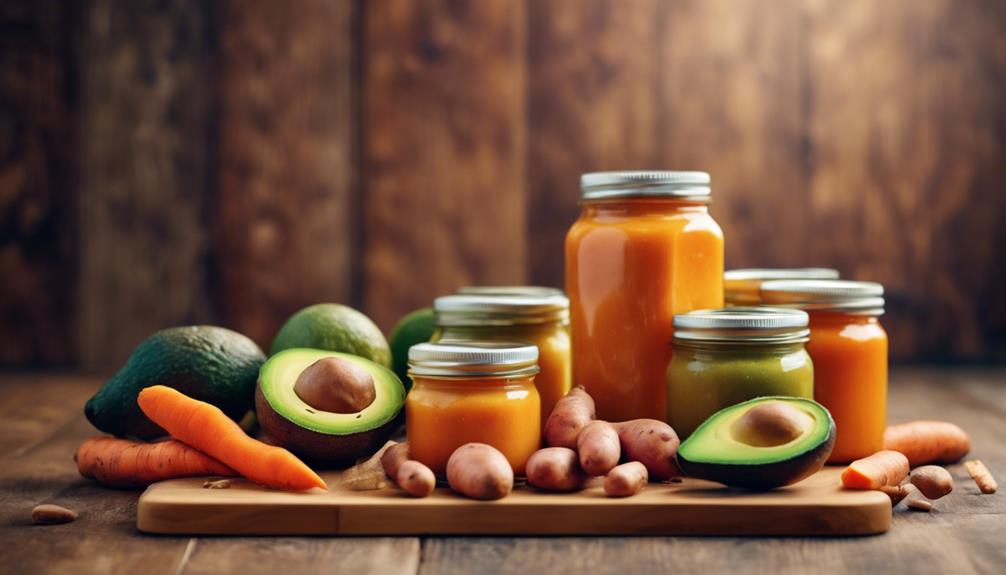
Stock up on essential baby food ingredients like peas, bananas, brown rice, avocados, sweet potatoes, butternut squash, and more to create nutritious homemade meals for your little one. These ingredients serve as an important powerhouse, providing essential vitamins, minerals, and antioxidants necessary for your baby's growth and development.
Incorporating finger foods such as blueberries, mango, quinoa, and cherries can introduce different textures and flavors to your baby's palate, supporting their journey into solid foods through baby-led weaning.
Including carrots, pumpkin, spinach, and leeks in your homemade baby food recipes not only adds variety but also offers a range of necessary nutrients. Carrots, rich in antioxidants, contribute to your baby's overall health, while leeks, being nutrient-dense, enhance the flavor profile of dishes.
Experimenting with flavor combinations like mint and apricots can introduce new tastes to your baby, encouraging healthy eating habits from an early age. By introducing these diverse ingredients, you can create wholesome meals that cater to your baby's nutritional needs while making mealtime an enjoyable experience.
Simple Baby Food Recipes
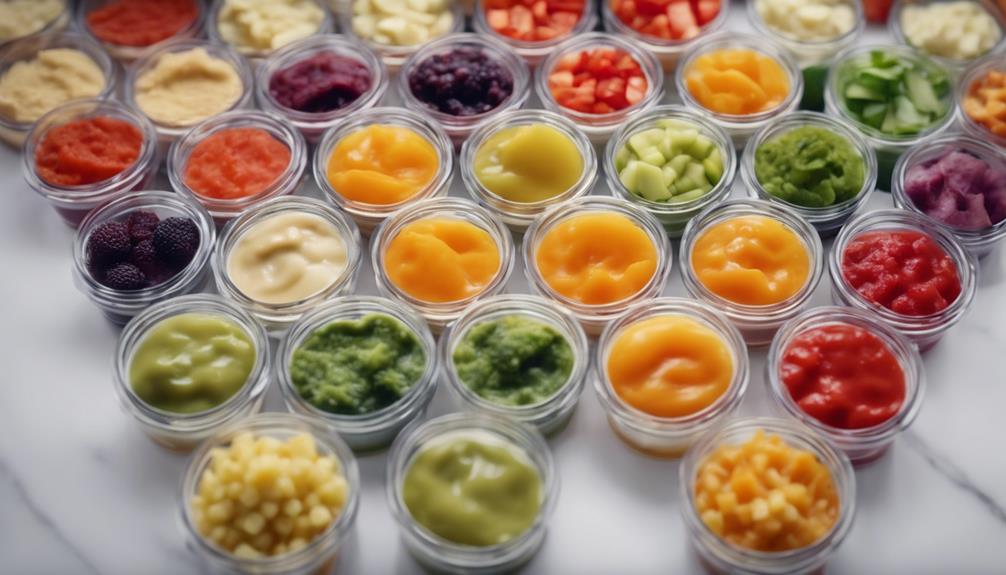
To create nourishing meals for your little one, explore these simple baby food recipes using basic ingredients like sweet potatoes, brown rice, chicken, pears, and bananas.
- Homemade: Prepare homemade baby food by steaming sweet potatoes until soft, then blending them into a smooth puree for a delicious and nutritious meal.
- Cooking Techniques: Cook brown rice until tender, then mix it with pureed chicken for a wholesome and filling baby food option.
- Finger Food: For a fun and interactive meal, try cutting ripe bananas into small pieces that are easy for your baby to pick up and eat by themselves.
- Wholesome Ingredients: Combine cooked pears with a hint of cinnamon to create a flavorful puree that introduces different tastes to your baby's palate.
These recipes offer a variety of textures and flavors while ensuring your little one receives essential nutrients from wholesome ingredients. Experiment with different combinations to provide a well-rounded diet for your baby's growth and development.
Storing Homemade Baby Food
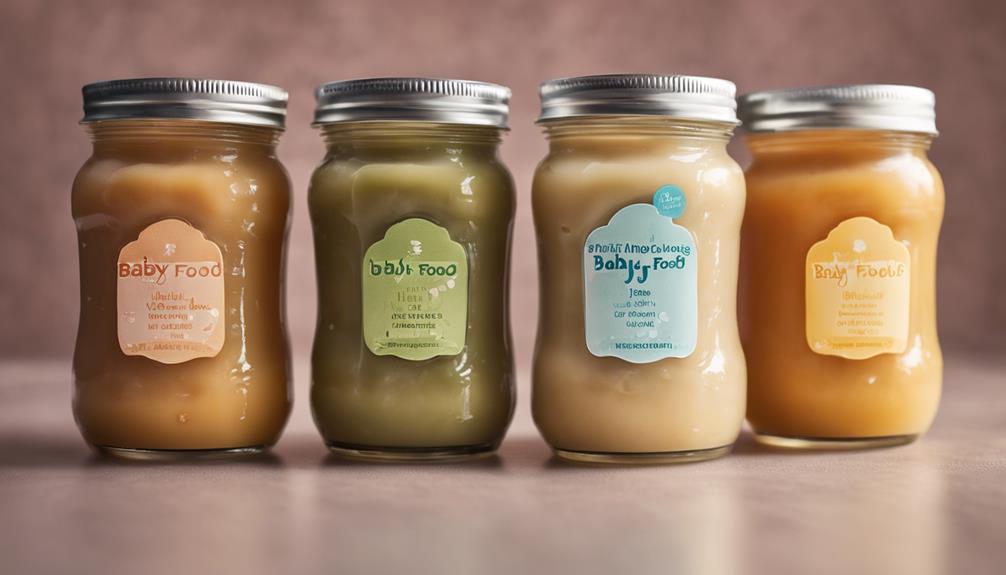
When storing homemade baby food, it's essential to use proper storage containers to maintain freshness and prevent contamination.
Freezing homemade purees in ice cube trays and transferring them to freezer-safe containers can extend their shelf life significantly.
Refrigeration guidelines should be followed strictly, ensuring that the homemade baby food is safe for consumption.
Proper Storage Containers
Consider using BPA-free, airtight containers when storing homemade baby food to maintain freshness and quality. These containers help preserve the nutrients in the food and prevent contamination. Here are some tips for proper storage:
- Use Ice Cube Trays:
Portioning baby food into ice cube trays allows for easy servings. Once frozen, transfer the cubes into labeled containers for longer storage.
- Label Containers:
Always label containers with the date of preparation. This guarantees you know when the food was made and can keep track of freshness.
- Store Baby Food Properly:
Keep homemade baby food in the refrigerator for 3-4 days. If you plan to store it longer, freeze it for 3-4 months to maintain quality.
- Thaw Frozen Baby Food Safely:
To thaw frozen baby food, place it in the refrigerator overnight or run warm water over the container until thawed. Avoid using the microwave to maintain nutrients.
Freezing Homemade Purees
For ideal convenience and freshness, freezing homemade purees in ice cube trays is a practical method for storing homemade baby food. By freezing the purees in ice cube trays, you can guarantee portion control and easily access small servings when needed.
When frozen, these homemade baby food purees can be stored in the freezer for up to 3-4 months, allowing for convenient meal prep ahead of time. Thawing frozen baby food can be done under warm water or in the refrigerator, preserving the nutrients and taste of the food.
Before serving, consider using breast milk, bone broth, or cooking liquid to thin out the frozen baby food purees to achieve the desired consistency. Storing these purees in small containers also helps maintain freshness and prevents waste, making it a practical and efficient method for homemade baby food management.
Refrigeration Guidelines
You can store homemade baby food in a sealed container in the refrigerator for up to three days.
To guarantee freshness and safety, follow these guidelines:
- Storage: Place homemade baby food in airtight containers to prevent contamination and odors from affecting the food.
- Freezing: Extend the shelf life of homemade baby food by freezing it in ice cube trays; this method allows for easy portioning and storage for up to three months.
- Blending Consistency: When preparing baby food, use enough liquid or base to achieve a smooth and easily digestible consistency for your little one.
- Thawing: Thaw frozen baby food either in the refrigerator overnight or under warm water before serving to maintain its nutritional value and taste.
Consider freeze-drying baby food for convenient travel options, ensuring your little one has nutritious meals even on the go.
Tips for Making Baby Food
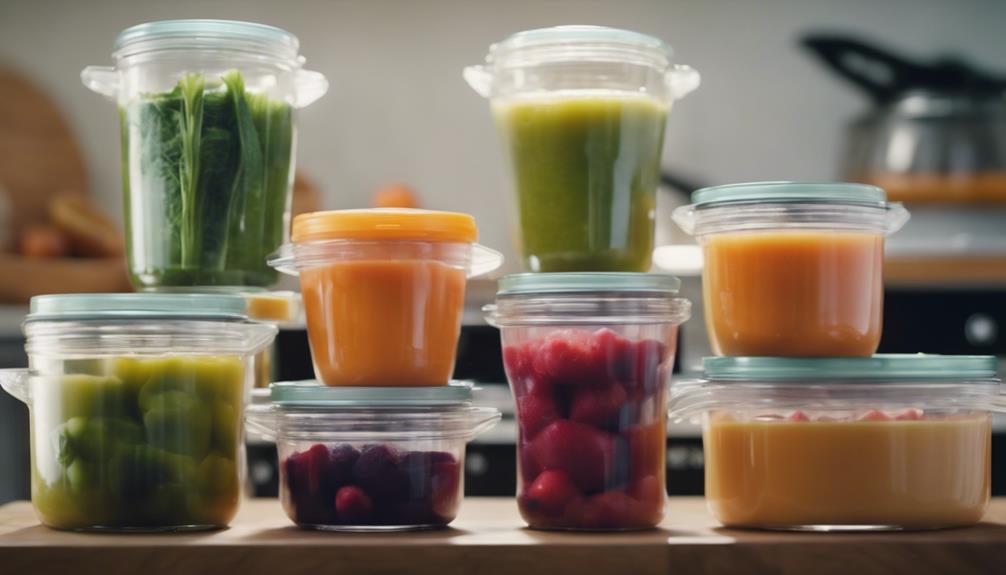
To make baby food efficiently, utilize ice cube trays for storing and portioning your homemade creations.
When making homemade baby food, contemplate incorporating nutrient-dense ingredients like sweet potatoes, pears, and chicken to guarantee a well-rounded diet for your little one.
Invest in a hand-held immersion blender for smooth and easy pureeing, making the process quick and hassle-free.
Remember to store homemade baby food in the refrigerator for 3-4 days or freeze it for a longer shelf life, maintaining its freshness and nutritional value.
Experiment with various ingredient combinations to create delicious and nutritious meals tailored to your baby's preferences and nutritional needs.
When introducing solids, baby oatmeal and whole milk are excellent first foods to mull over, providing essential nutrients for your baby's growth and development.
Frequently Asked Questions
What Is the Healthiest Way to Make Baby Food?
To make baby food healthily, use fresh, whole ingredients to maximize nutrients. Control quality, avoid added sugars, preservatives, and artificial ingredients. Steam or roast veggies for best health benefits. Skip excess salt and sugar for healthy habits. Blend fruits and veggies for essential nutrients.
What Are Easy Foods for Babies to Eat?
For your little one, soft fruits like ripe bananas or cooked sweet potatoes are easy to eat. Try diced avocado or steamed veggies for finger foods. Remember, introducing a variety of nutrient-rich foods is key for their growth.
What Can Be Mixed With Baby's Regular Meals to Make Them More Nutritious?
To make your baby's regular meals more nutritious, consider adding pureed fruits like apples or bananas, cooked vegetables such as sweet potatoes, and protein sources like chicken or lentils. Healthy fats like avocado and chia seeds can also enhance the nutritional value.
What 3 Meals Should a Baby Eat?
You should aim for three meals a day – breakfast, lunch, and dinner – for your baby. Each meal should offer a mix of nutrient-rich foods like fruits, veggies, proteins, and grains to support their growth and development.
Conclusion
To sum up, preparing homemade baby food is a simple and nutritious way to introduce your little one to solid foods. With the right ingredients, tools, and recipes, you can guarantee that your baby receives the best start to their culinary journey.
So, why not give it a try and see the joy on your baby's face as they taste these wholesome meals for the first time? The possibilities are endless, and the benefits are numerous. Give it a shot and watch your baby thrive!

